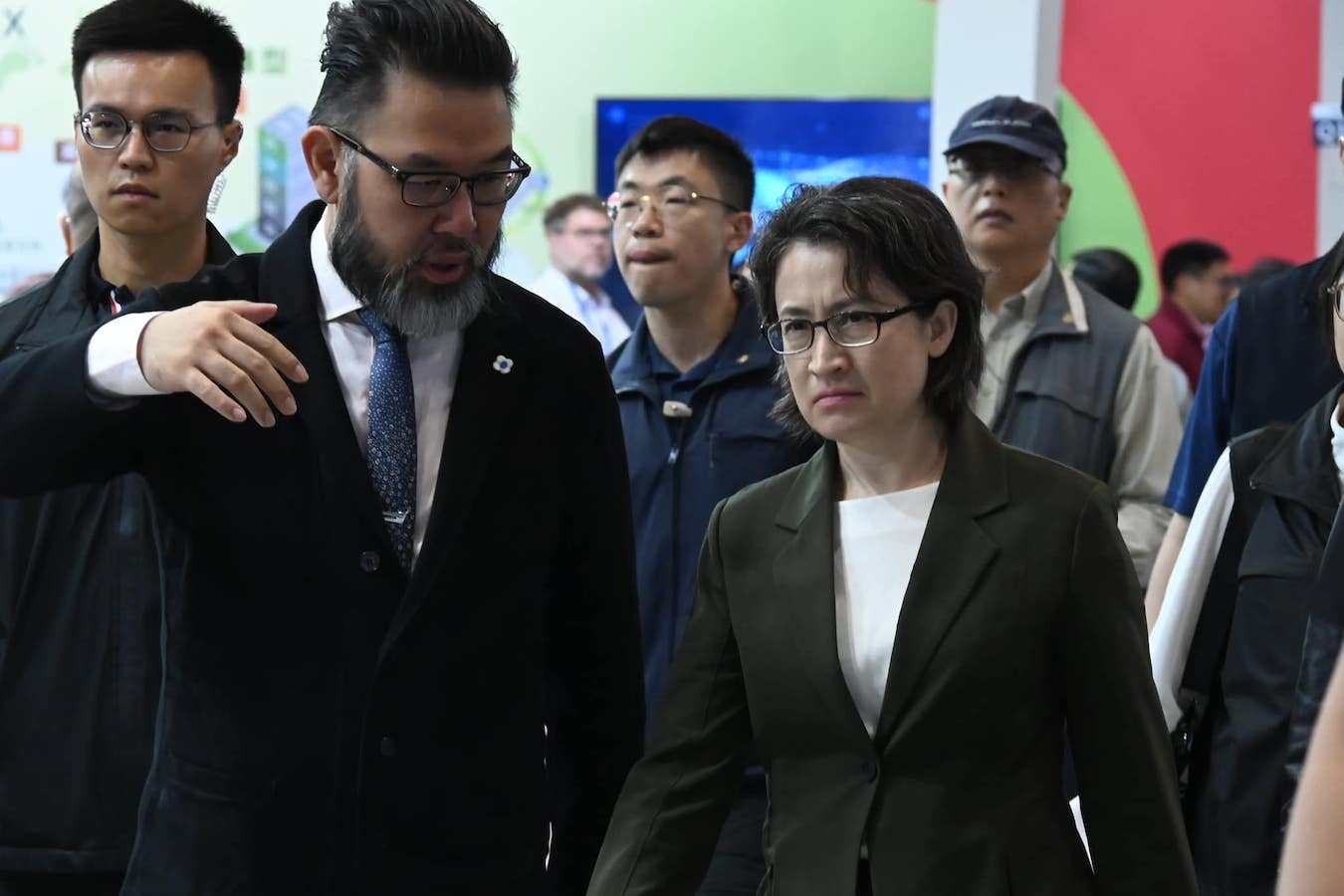by Brian Hioe
語言:
English
Photo Credit: Hsiao Bikhim/Facebook
AN INCIDENT INVOLVING the following of Taiwanese Vice President-elect Hsiao Bikhim’s motorcade by a vehicle driven by a Chinese military attache in Prague last week proves revealing. The Chinese military attache was following Hsiao in a vehicle, as a means of harassment, and was stopped by Czech police due to his following Hsiao’s motorcade.
Hsiao is visiting Prague due to being invited by Czech Senate President Milos Vystrcil. In particular, Hsiao is currently visiting the European Union (EU) in the transition period before taking office next month. This takes place after a similar visit by Hsiao to the US.
Hsiao’s trips are likely to shore up relations before the Lai administration takes power. Indeed, Hsiao likely aims to reassure that the policies of the Lai administration will be largely the same as the Tsai administration, and there will be no sudden moves toward Taiwanese independence or of like nature–as some have feared of Lai.
Indeed, Hsiao was seen as having been highly effective in her previous position as Taiwan’s representative to the US, reassuring the US that Lai would not prove to be a dangerous provocateur where cross-strait issues were concerned, given Lai’s previous history of pro-independence statements. Hsiao is expected to continue to play a role as a diplomat in serving as vice president. That is, her being named Lai’s vice president was to shore up the foreign policy credentials of the incoming administration, to signify continuity with the Tsai administration, as well as to present an olive branch toward Tsai’s faction of the DPP from Lai’s.
 Hsiao Bikhim (center-right). Photo credit: Hsiao Bikhim/Facebook
Hsiao Bikhim (center-right). Photo credit: Hsiao Bikhim/Facebook
At the same time, the Hsiao visits to the US and EU were conducted with the claim that these were personal trips. While on other occasions, diplomatic representatives of Taiwan such as Minister of Foreign Affairs Joseph Wu have made highly public trips to the European Union in the pursuit of strengthening ties, Hsiao’s trips were done with little publicity, and aimed to be low-profile.
It is possible that China may seek to try and intimidate Taiwan ahead of or after the inauguration, perhaps with a set of military exercises or another means of intimidation. As such, it is probable that Hsiao’s trip was carried out in a low-profile manner to avoid giving China a pretext for retaliating. Conducting too ostentatious of a trip would have been seen similarly.
It is unclear what China intended to carry out through the military attache following Hsiao. Other trips by Taiwanese diplomats led to expressions of displeasure from China, but this did not always entail such direct efforts at intimidation. It is unclear whether this individual was acting on their own, in line with how “wolf warrior” diplomats have sometimes behaved in past years.
Ties between Taiwan and European countries have strengthened considerably in the past few years. Countries that themselves face geopolitical threats from Russia or experienced the history of nominally Communist regimes have often been among those that have been most supportive of Taiwan, likely because of global geopolitical alignments that position China alongside Russia, and because of a sense of common history.
Nevertheless, the incident highlights the differences in Taiwan and China’s diplomatic behavior abroad, in which Taiwan has to downplay its public profile, though China sometimes stages highly public incidents in order to show displeasure. Likewise, with victim-blaming directed at Taiwan regarding where it is often seen as “provoking” China, Taiwan still has tread a careful line diplomatically.
The incident takes place in a similar timeframe to diplomatic contestation after an earthquake that struck Taiwan. The earthquake was the largest earthquake to hit Taiwan in twenty-five years, though only around a dozen were killed.
Countries with close political ties to Taiwan, such as the US or Japan, were quick to express support, announce donations, or other forms of support. Turkey, for example, dispatched a rescue team to assist.
While China also offered aid, this was declined due to the strings that would have been attached. Moreover, Taiwan has hit back against diplomatic representatives of China expressing thanks for international support, seeing as the PRC does not politically administer Taiwan and never has. Taiwan also criticized Bolivia for expressing concern to the Chinese government over the earthquake, for much the same reasons.

